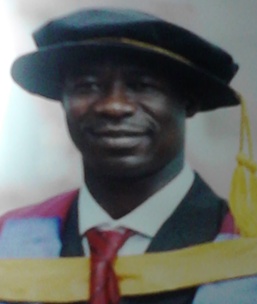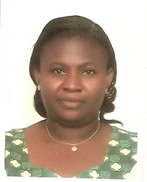The Department of Human Resource Development is under the College of Management and Social Sciences, Okuku. The Department offers one academic programme;
B.Sc. Industrial Relations and Personnel Management
PHILOSOPHY
The philosophy of the Department of Industrial Relations and Personnel Management, Osun State University, Okuku Campus is to produce graduates who are sensitive, skilful and able to appreciate political phenomena.
It also seeks to produce graduates who can make objective contributions to national development by offering viable alternative political and policy strategies and modules to national development in this period of national search for sustainable political development.
OBJECTIVES
i) Produce graduates who are generally competitive in the global village and develop entrepreneurial spirit in them.
ii) Prepare them for leadership careers in administration, diplomatic service and other managerial endeavors.
iii) To give them the needed exposure and strive vigorously to rekindle their interest in public affairs as enlightened and disciplined citizens.
ADMISSION REQUIREMENTS
General
For admission into any of the first degree programmes of the University, a candidate shall be required to possess the following minimum qualifications:
1. Senior Secondary School Certificate (SSCE) or its equivalents with credit level passes in five (5) subjects at not more than two sittings. The candidate must also earn an acceptable score in the Unified Tertiary Matriculation Examination (UTME).
2. Candidates seeking admission by direct entry into the 200 level, must have at least five (5) O/L credits, two of which must be at Advanced Level or approved equivalents.
Departmental Admission Requirement
U.M.E. Candidates
For admission into the first degree programmes in the Department of Human Resource Development, a candidate must have the Senior Secondary School Certificate (SSCE) or its equivalents with credit level passes in five (5) subjects: English Language, Mathematics, and one Business subject to form the core subjects, with credit in two other relevant humanities, social and management sciences, or even the natural and physical sciences subjects at not more than two sittings. The candidate must also earn an acceptable score in the Unified Tertiary Matriculation Examination (UTME).
Direct Entry Candidates
Candidates seeking admission by direct entry into the 200 level Human Resource Development programmes must have Advanced Level passes in at least two (2) relevant subjects, in addition to credit level passes in five of the subjects listed in 3.2.1 above at the SSCE or its equivalents. Candidates with ND and approved equivalents in relevant fields with at least a lower credit may be considered for direct entry into the programme. Candidates with acceptable pass in the UNIOSUN Foundation Programme (or the advanced diploma programme) are also eligible for admission into the 200 level, provided they possess the requisite qualification for entry into the 100 level of the programme.
Post UTME Screening
All Candidates seeking admission into the University, irrespective of their UTME scores, shall be required to pass the University post UTME Screening test before being admitted.
Registration Procedure
(a) Students shall normally complete registration at the beginning of the semester.
(b) Any addition or deletion from the courses for which a student is formally registered must be made with the consent of the course coordinator.
(c) A student may be allowed to withdraw from a course by the course administrator before a third of lectures might have been given. Such a student who withdraws after this time or who fails to sit for examination without reasons acceptable to the appropriate Faculty/College Board shall be deemed to have failed the course. A Grade point of 0F shall be recorded for the student in the course.
(d) Late registration in the course may be allowed with penalty of up to 4 weeks after the commencement of registration.
Duration of Degree Programmes
The minimum number of years to be spent to be awarded a first degree in a programme of study in non-professional area in the university shall be four years (or three years minimum for direct entry candidates). Registration shall not exceed an additional 50% of the duration of the programme if the student fails to graduate within the minimum number of years.
Graduation Requirements
To qualify for the award of a degree of the Osun State University, a student is required to have:
(i) completed and passed the prescribed number of units including all compulsory courses specified by the University.
(ii) completed and met the standards for all required and optional courses.
(iii) obtained the prescribed minimum CGPA.
Student Affairs is a unit within the Vice Chancellor’s Office and supervised by the Dean of Student Affairs. The Office of Student Affairs encourages and supports students’ success by providing a variety of support services, programme, and activities to enhance the students’ experience as well as assist students in meeting the many demands of the students, both personal and academic.
The staff advises student groups on a variety of issues including goal setting and event planning. Although the main office of the students’ affairs is at the main campus at Osogbo, branch offices exist in all the Colleges of the University with Sub-Deans overseeing activities at this level.
The Mission
The mission of the Student Affairs is to enrich the experience of every student at Osun State University through a wide range of educational, cultural, and social programmes as well as creating opportunities to build skills. We also maintain cordial relationship between Students and the community.
Student Affairs Office oversees:
- Orientation programme
- Matriculation programme
- Student Handbook production
- College / Departmental Students’ Associations
- Student Resource Information
- Student Support Services
Collation of information from scholarships and bursary awarding agencies, local governments and States.
The office also represents students’ interest before Management and appropriate statutory bodies of the University in addition to providing guidance and guidelines on Students conduct.
Office of Student Affairs is the primary resource on campus for students and serves as the main liaison between students and administration at UNIOSUN. We are also the “go to” office for a wide range of information such as ‘information about housing’ or ‘opportunities on academic support’.
We are partners with students in the academic process, and we stand committed to student success.
SUB-DEANS
|
S/N |
COLLEGE |
NAME OF SUB-DEAN |
|
1 |
Science, Engineering & Technology, Osogbo |
Dr. Oladejo Felix O |
|
2 |
Health Science, Osogbo |
Dr. Adegoke A.A. |
|
3 |
Agriculture, Ejigbo |
Dr. O. Jackob Osunkeye |
|
4 |
Humanities & Culture, Ikire |
Dr. Alaje O.O. |
|
5 |
Management & Social Sciences, Okuku |
Dr. Kolawole Sunday Ajibola |
|
6 |
Education, Ipetu-Ijesha |
Dr. Iwintolu Rukayat Oyebola |
|
7 |
Law, Ifetedo |
Dr. Bello Ayodeji Aliu |
CSO’S AND SUPPORT STAFF CONTACT AND CAMPUS
|
S/N |
COLLEGE |
PHONE NUMBER |
|
1 |
Health Science, Isale Osun |
07064465419,08109039816, 08166526835 |
|
2 |
Agriculture, Ejigbo |
08137019990, 08133483397 |
|
3 |
Humanities & Culture, Ikire |
08034627337, 09063202186 |
|
4 |
Management & Social Sciences, Okuku |
07062110592, 08169718530 |
|
5 |
Education, Ipetu-Ijesha |
08058096359, 07069698810 |
|
6 |
Law, Ifetedo |
08067125501, 07033575796 |
|
7 |
Main Campus |
08032488404,08109039816, 08166526835 |
Acting Dean of Student Affairs

Dr. Segun ADEBISI is a holder of B.Sc. (Hons) Chemistry (1985), M.Sc. Analytical Chemistry (1987) and PGDE (1991) of University of Ibadan. He also holds Ph.D. Analytical Chemistry (2007) of Federal University of Technology, Akure. Dr Adebisi joined the services of Osun State University as Senior Lecturer in Chemistry on 1st August, 2009. He was Ag. H.O.D. Chemical Sciences from 1st August, 2011 to 31st 2013 and 1st August,2014 to 31st July, 2015. He attended the International Higher Education Officers' Programme in Dubai between 21st to 26th March, 2015. He was appointed Ag. Dean. Students Affairs on 1st August, 2015
![]() :
:
![]()
Sub Deans
MSS Brief![]() ,
,
Sub-Dean, College of Humanities & Culture Oluwakemi Abiodun ADESINA, B.A., M.A., Ph.D. (Ibadan), is a historian with research interests in migration, International commercial sex trade, gender and women’s studies. Her fields of research interests include: Women’s history; Social and economic change; migrations, and international prostitution.
Oluwakemi Abiodun ADESINA, B.A., M.A., Ph.D. (Ibadan), is a historian with research interests in migration, International commercial sex trade, gender and women’s studies. Her fields of research interests include: Women’s history; Social and economic change; migrations, and international prostitution.
![]() ,
,
Sub-Dean, College of Education
DR. OKANLAWON Ayoade Ejiwale received his B.Sc. (Ed) in Chemistry and Education from University of Ilorin, Ilorin in 1990 and his Master of Education (Curriculum Development) from the same institution in 1997. Later in 2005, he obtained Ph.D. (Science Education) from the University of Ilorin.
![]()


